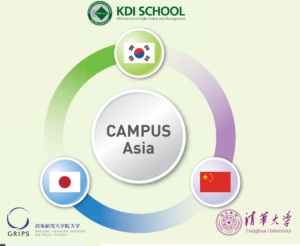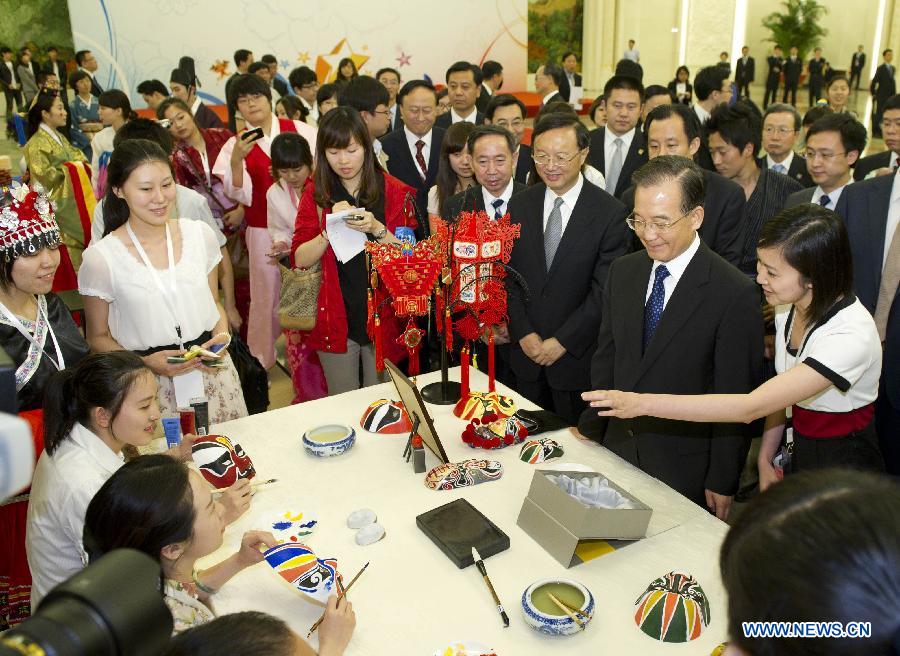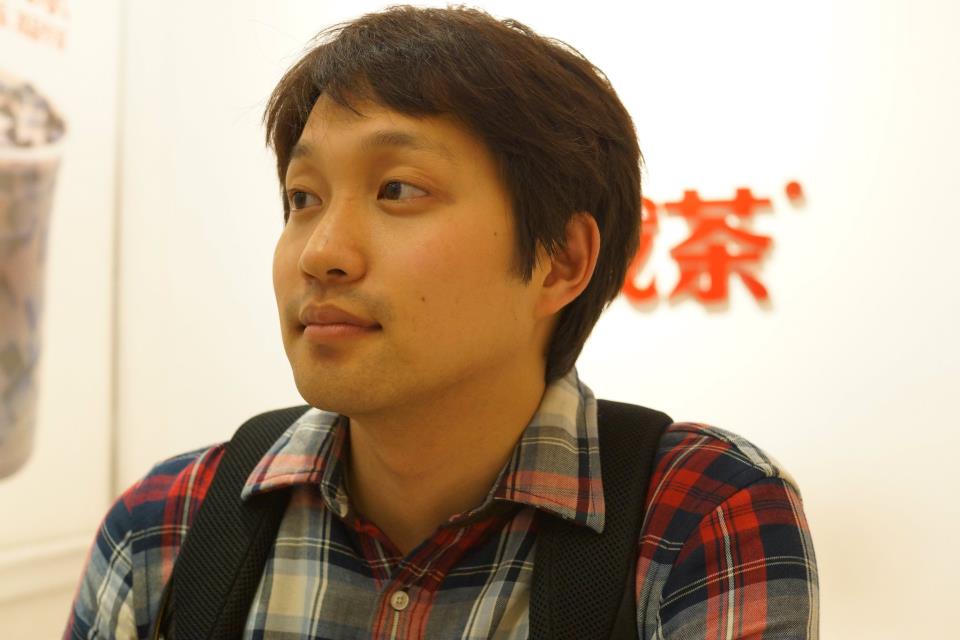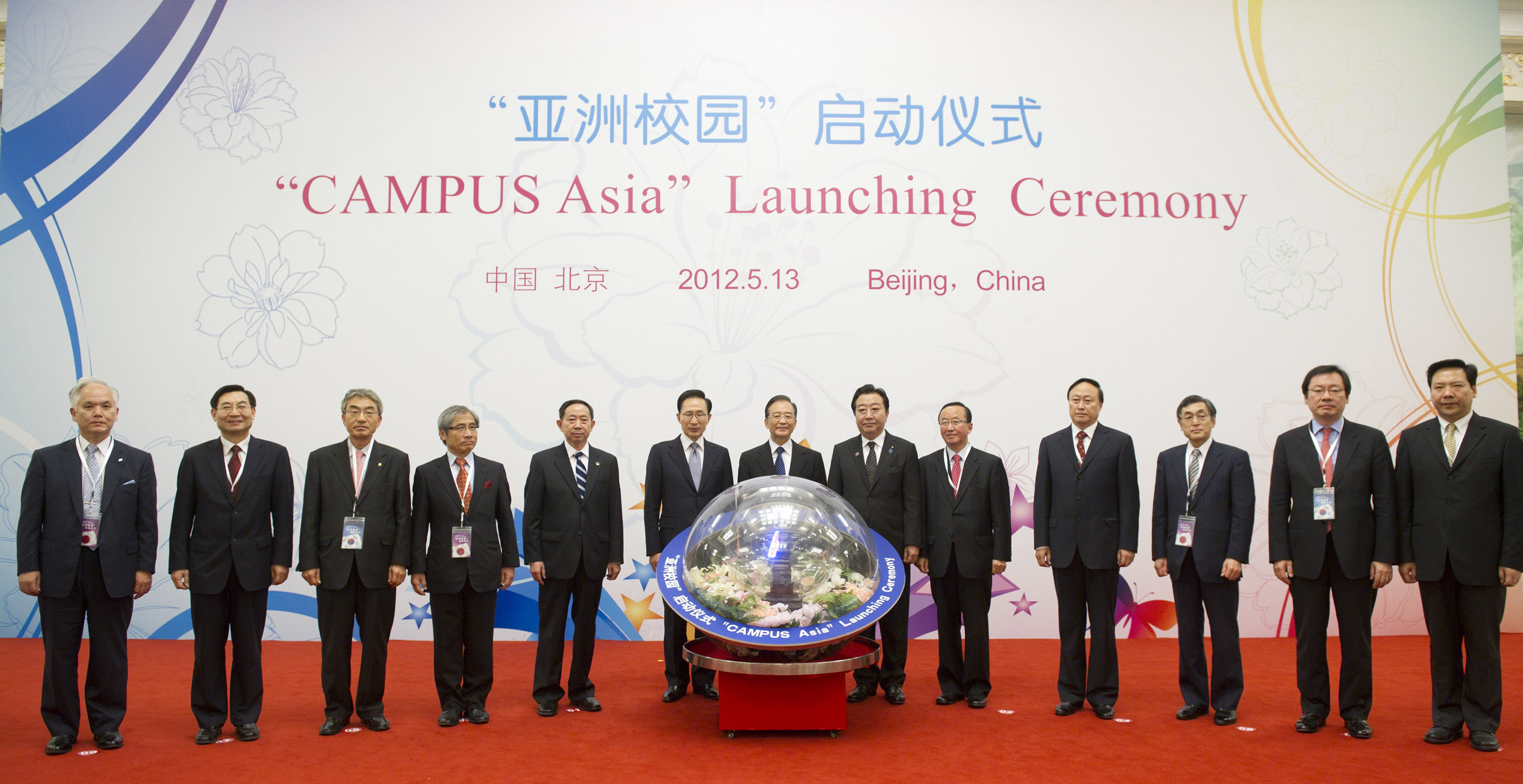
Campus Asia launched in China
- Date 2012-08-01 01:56
- CategoryResearch and Education
- Hit2019
 On May 13th, leaders of Korea, China and Japan met in Beijing for a launching ceremony of CAMPUS Asia, a government-sponsored student exchange project between universities of the three countries. President Hyun was also invited to grace the event, celebrating the opening of an innovative three-way exchange program.
On May 13th, leaders of Korea, China and Japan met in Beijing for a launching ceremony of CAMPUS Asia, a government-sponsored student exchange project between universities of the three countries. President Hyun was also invited to grace the event, celebrating the opening of an innovative three-way exchange program.
CAMPUS Asia is the latest attempt from the three governments to bridge the cultural, linguistic and structural barriers in the higher-education system of Northeast Asia. Partnering with GRIPS in Japan and Tsinghua University in China, KDI School has sent its first CAMPUS Asia student to Tsinghua last spring. The Globe had the opportunity to interview that first participant, Mr. Kyun Heo (2011 MPP, Korea), about his life in Beijing and the program in general.
What motivated you to apply for the program in its early phase?
While studying part-time at the KDI School, I was working for International Contractors Association of Korea as a Market Researcher of the Great Mekong Sub-region construction field. As I’d always wanted to study abroad I was considering applying for one of the KDI School exchange programs. (Not the GMP because it costs a lot of money.) When it was announced last year that the school plans to operate CAMPUS Asia project, it seemed like a perfect chance to get close to my dream at a low cost.
You’ve now spent a semester in Tsinghua. Would you recommend Campus Asia program to your classmates?
I recommend CAMPUS Asia program to any Korean students, not to mention KDI School friends. I say this because China and Japan are the nearest neighbors of Korea yet we still have a lot to discover from each other. I must also mention that China is a growing super power; the experience of learning in China will be increasingly useful in the next decade. In addition, I feel lucky to be studying at not just any Chinese university but at Tsinghua, a world-renowned institution.
What is the biggest difference between Tsinghua and the KDI School?
Well, the Tsinghua curriculum is naturally focused on issues of China, whether it’s about policies, politics or international relations. Another difference is that since Tsinghua is a big school, I have a wider range of class choices. Exchange students from KDI School are automatically registered under the School of Public Policy and Management (SPPM), but you may also take some classes (if offered in English) from School of Economy and Management or Department of International Relations. Lastly, SPPM offers an internship opportunity to their students, albeit limited. You can have a variety of different experiences as long as you actively seek a chance.
On the other hand, what’s similar to KDI School is that SPPM professors are very much involved in the current policymaking process of China. This gives their courses an exciting flavor of real-world relevance.


What has been your most memorable experience so far?
Being at Tsinghua itself is an amazing experience to me. It has one of the largest and most beautiful campuses in the world, with the large number of international students hailing from far and wide. I have met and become acquainted with many people from diverse cultures and backgrounds. Interestingly the demographics of international students are slightly different from that of the KDI School, in that there are a lot of students from advanced countries in Tsinghua, as opposed to KDI School’s majority from developing countries. I guess this reflects the global need to learn about China nowadays.
What would be the strength and the weakness of the Campus Asia Program in your opinion?
As I see it, financial support from the government is the strongest appeal. CAMPUS Asia students do not need to pay for tuition when studying at a partner school, and they also receive a monthly stipend. Potential weakness is that China and Japan are less popular countries for studying abroad compared to USA or Europe, so there may be some difficulties in recruiting as many students as some would hope for. However, I personally think that if you want to make a career in the public policy field, you really have to know a lot about Northeast Asia and those two countries.
Do you think that Campus Asia will help enhance the student mobility and mutual understanding among the three countries?
Indeed I do. When I attended the CAMPUS Asia launching ceremony in May, I met so many great Chinese and Japanese students sharing the same vision. We are interacting with each other via various channels throughout our course of learning. It is my hope that this network continues to build a sense of unity and true understanding among the participants, and grows to lead the future cooperation between the three neighboring nations.

By Befekadu Mulatu LIKASA (2011 MPP, Ethiopia)
Related News
-
Research and Education10 days ago
Republic of Korea Economic Bulletin, May 2024#KDI #Economic #KDISCHOOL #kdischool #Economic Bulletin #Research
-
Research and Education38 days ago
Republic of Korea Economic Bulletin, April 2024#KDI #Economic #KDISCHOOL #kdischool #Economic Bulletin #Research
-
Research and Education66 days ago
Republic of Korea Economic Bulletin, March 2024#KDI #Economic #KDISCHOOL #kdischool #Economic Bulletin #Research
